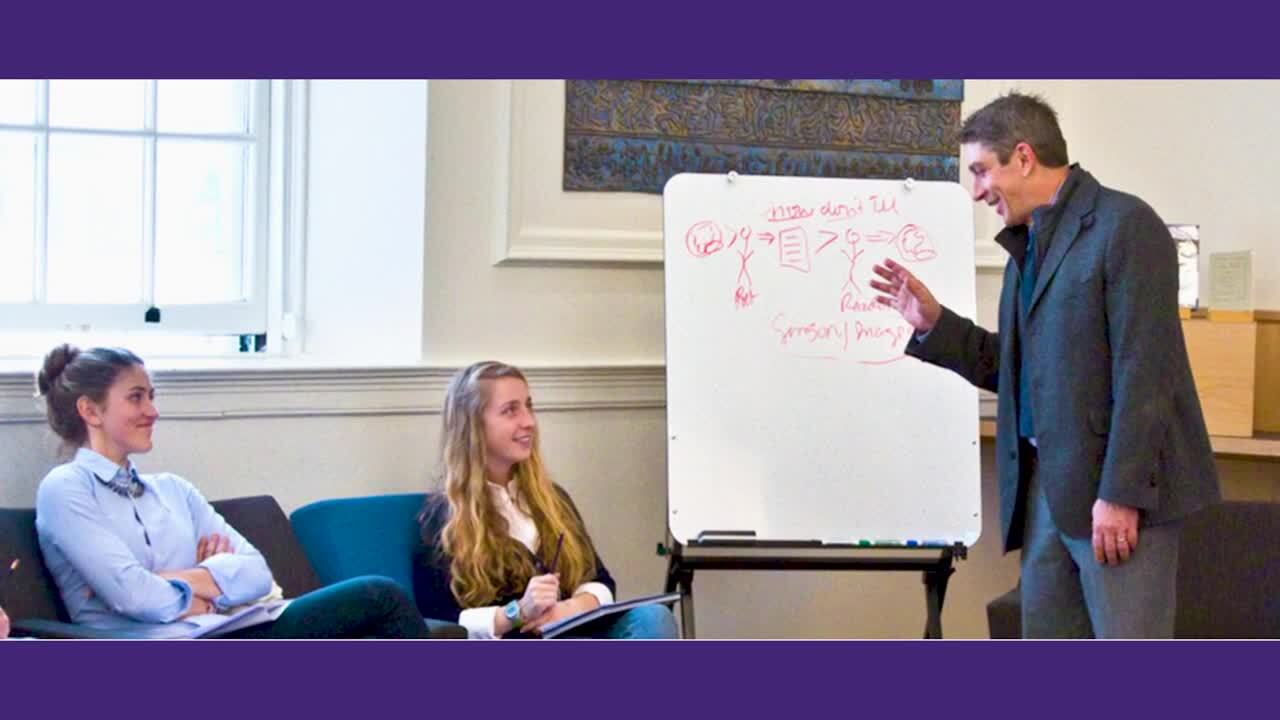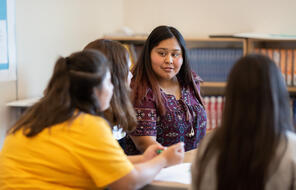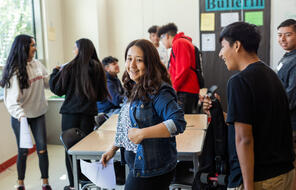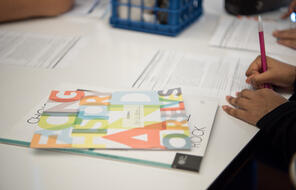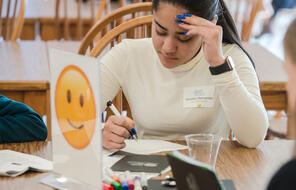I've often thought that poetry is one of the most powerful ways of storytelling and connecting people. We can talk about in the abstract forever, right? Abstract ideas or sociopolitical issues or whatnot. And it grounds it in real stories, real lives, real names, real faces, real smiles, real people, real families. And once you make contact with that, I think it's very hard to deny that.
The other thing that I think is important, and I often will compare poetry to music, is that poetry is also emotionally-centered and emotionally-based. A poem is like singing a song. And you just feel what that person is feeling all the time. In the ways that when we hear a song, we're so moved which it's not our lives, but we're moved by this person's life because it's such a honest telling, right? And so that's another part of why poetry differs than other genres in that sense.
I think poetry also has its roots in the collective. Poetry, for many thousands of years before we were reading it in our jammies at home, it was a collective experience. It was oral tradition. It comes out of song. It comes out of drama. It comes out of chant. It comes out of prayer. Even when we're reading a poem alone, I always say it's like the proverbial campfire around which we can all share our stories. You see, I'm a little biased for poetry. But I think it is one of the most powerful ways that we can connect with each other and build these bridges of understanding. These very strong bridges.
One of the things I always like to express or talk about is the idea that poetry is not just for the English classroom. Poetry is for the classroom of life. In particular, it lends itself to so many other subject matters, social studies being a really obvious example. But there's poems about math. There's poems about astrology. There's poems about basically anything in the world. It's part of why in a sense, I'm also addicted to being a writer and a poet, because I get to explore all these worlds in my work.
In truth, I've often encountered teachers that are afraid of poetry themselves, or feel intimidated by it as well. We don't really allow a lot of subjective responses when we're teaching poetry because we were taught not to be subjective.
It's my understanding as a writer that really, the way into a poem is to first have that subjective response so that you, as a teacher, and your students don't feel like they're waiting for the right answer, right? The reader becomes a sleuth. And it's about finding what this one word means or whatnot. Again, it's a lot like music. The subjective experience is a way into objective understanding.
So I often turn to the work of John Dewey, the educator and philosopher, whose basic premise is that you don't approach the poem or any art object cold. What he calls the detour, which is something that will get the reader or the viewer into the experience of what this artist has created. That approach allows more for the subjective entering into the poem.
I'll give you a simple example. There's a poem about blueberries, right? And so one of my lesson plans calls for bringing a pint of blueberries and have the students just talk about blueberries. Suddenly, they're experiencing the poem. It's a softer way into the poem and is not as intimidating. I think learning it that way, then you can start getting into the objective nature of the poem.
A poem is a mirror in which the reader and-- the reader and the poet find themselves and their lives blur. And that's how we really come to an understanding of a piece. I also like to look at it this way. There is lowercase life of the reader, lowercase life of the poet. Together, we get the big L. What is life, right? And I think if you learn how to read a poem that way, you will learn how to read any poem.
I think the first question you need to ask yourself as a reader, or if you're an educator to your students is not what does a poem mean, is how does a poem make you feel? And what does it remind you of? Again, entering the poem through the subjective, which is the strongest way to understand something. Dispelling that myth of what did the poet mean?
And often, people will tell me things about my poems. I'm like, "Yeah, that sounds great." But the idea that the poet is completely intentional about one particular meaning and actually, it's about many meanings. As we like to say, once we write a poem, it's no longer ours. I often recommend to educators to read a book on craft. How is a poem made? I think that helps us feel more at ease in how a poem works. And so you're not just looking at it analytically.
But now, if you're looking at the craft, you're also looking at it now as an artist. It takes the idea of pure analysis and makes it more of an experience. Again, it's not just about analysis. It's about creating. How do poets do this stuff? And I think that helps to be a better teacher and teaching poetry, but also helps our own fear of poetry.
[MUSIC PLAYING]
